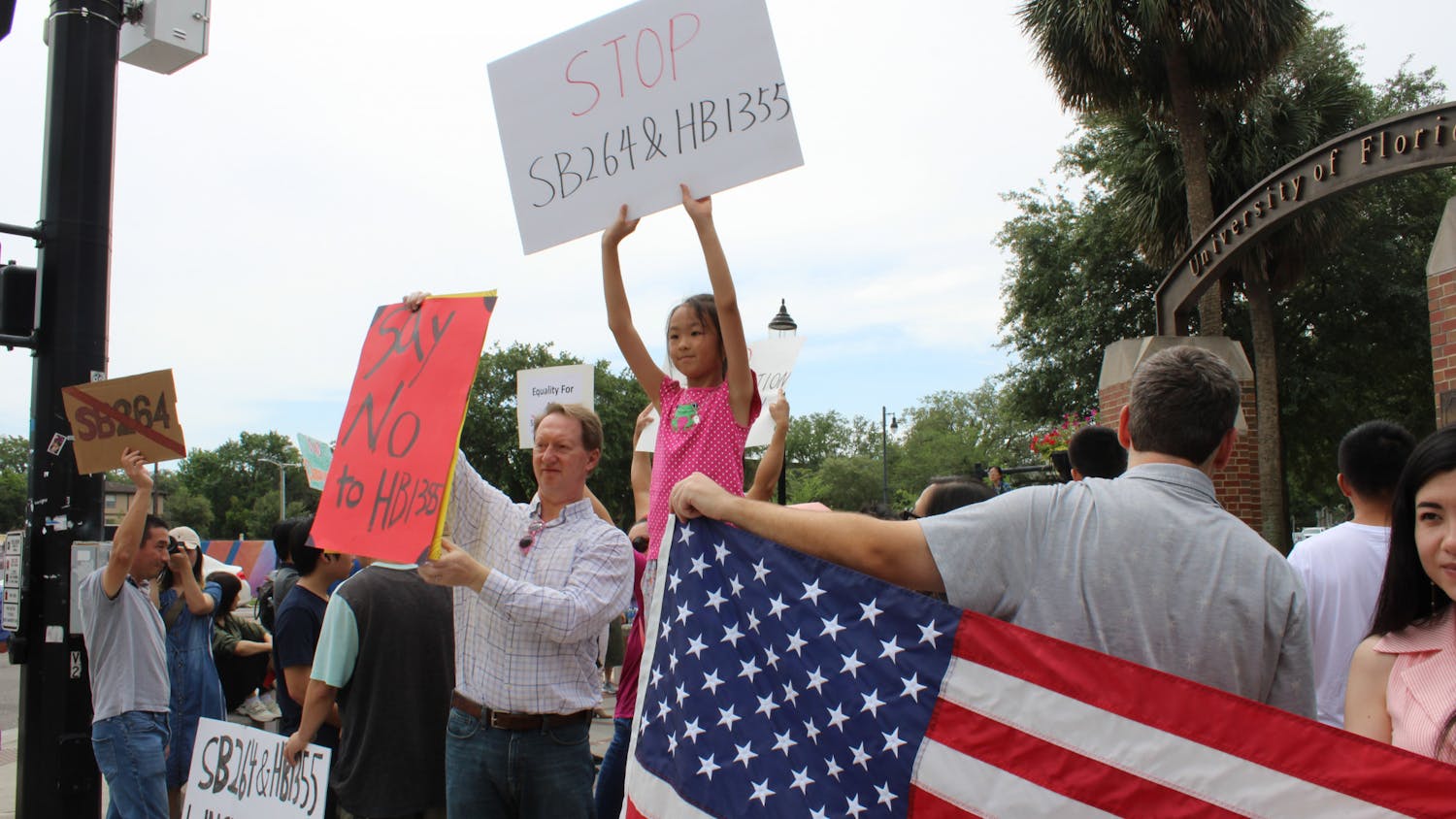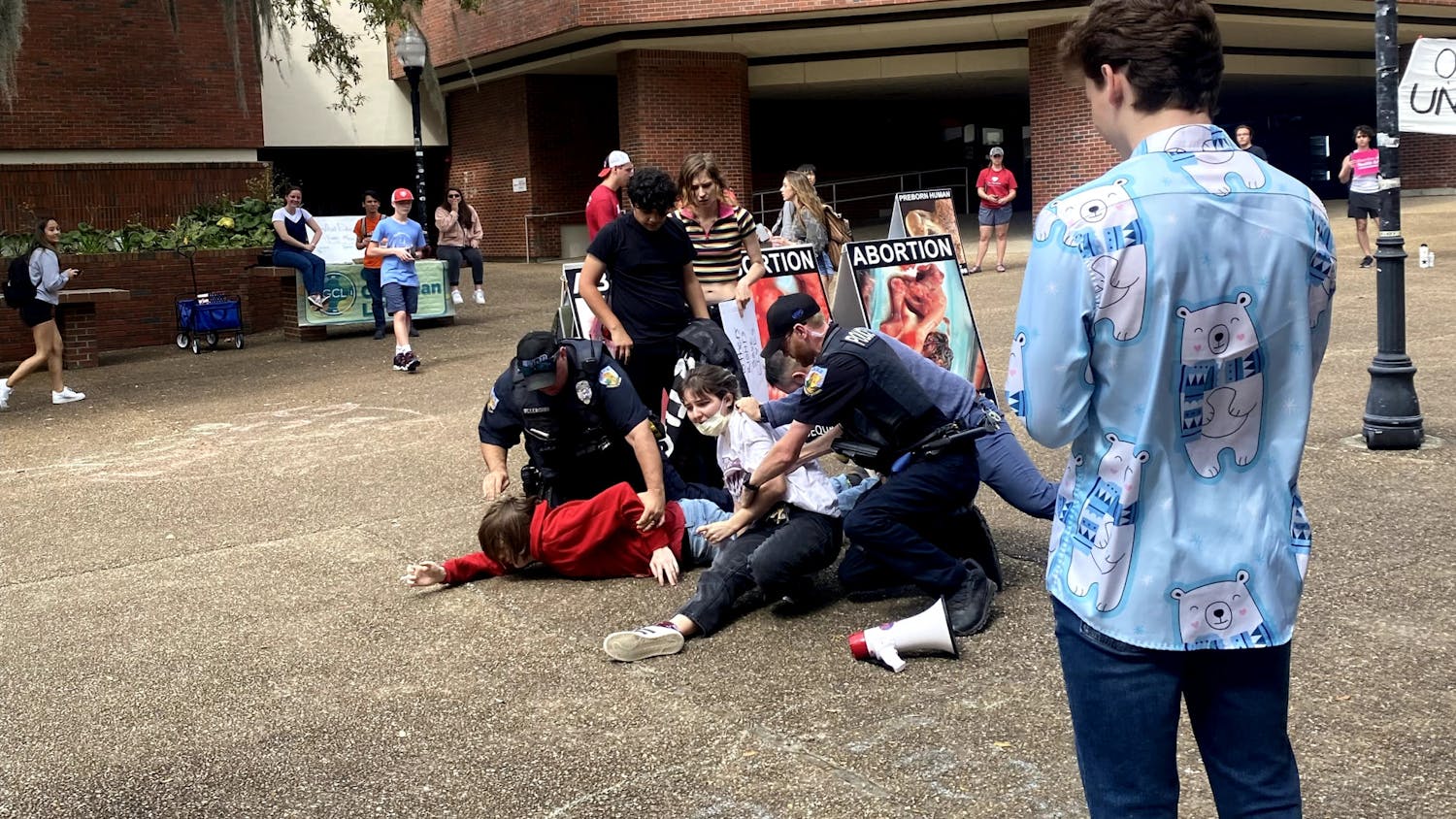If you’re on Facebook, you probably saw bemused, frantic, outraged statuses about the Turlington preacher and a UF student getting into a tussle.
The Turlington preacher — or any campus preacher — is an inevitable part of the college experience. In a perfect world, these preachers would be respectful, say their peace and be open to thoughtful discussion of religion and spirituality.
Unfortunately, such is not always the case. Talk to anyone who has crossed the Turlington preacher’s path, and he or she will tell you about the name-calling and harassment on the basis of sexuality, religion or clothing choice.
Aside from the obvious — that harassing students is hardly a Christlike tactic for getting people interested in Christianity — the Turlington preacher’s words undeniably fall under the category of hate speech.
Hate speech presents a moral dilemma for champions of civil rights. According to the American Bar Association, “In this country there is no right to speak fighting words — those words without social value, directed to a specific individual, that would provoke a reasonable member of the group about whom the words are spoken.
“For example, a person cannot utter a racial or ethnic epithet to another if those words are likely to cause the listener to react violently. However, under the First Amendment, individuals do have a right to speech that the listener disagrees with and to speech that is offensive and hateful.”
In regards to the great free-speech-during-hate-speech debate, the American Bar Association suggests that policies should be created to define hate speech as a hate crime, and therefore punishable. In doing so, laws and policies would discourage bad behavior — not bad beliefs.
On our open campus, speakers shouldn’t be prohibited from publicly delivering a message. However, singling out students and harassing them should be defined as an act of hate and should have a consequence, whether it be a citation or an ejection from campus.
According to the UF Student Conduct Code, “As an educational institution, the University recognizes that the transmission of knowledge, the pursuit of truth, and the development of individuals require the free exchange of ideas on any subject whether or not controversial, self-expression, and the challenging of beliefs and customs.
“This often (although not always) requires respectful speech and conduct ... the University requires civility, respect, and integrity in the curricular program and encourages these behaviors in other activities among all members of the student community.”
UF has the ability to discourage the Turlington preacher from singling out students and insulting them.
This incident should send a message to the university that action is required to make students of every religion, ethnicity, race, sexuality and gender feel safe.
[A version of this editorial ran on page 6 on 2/20/2014 under the headline “UF should be a place for free —not hate — speech"]





